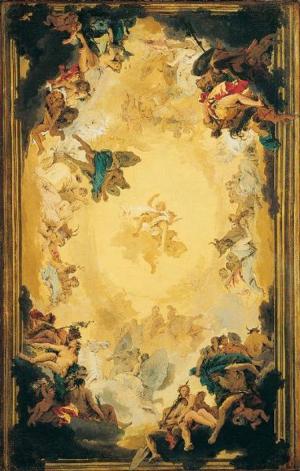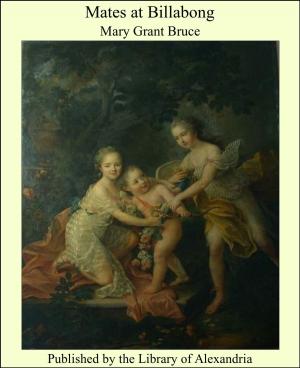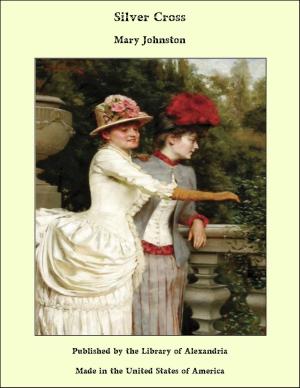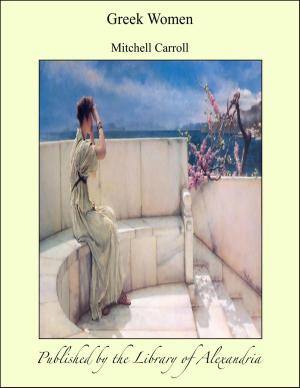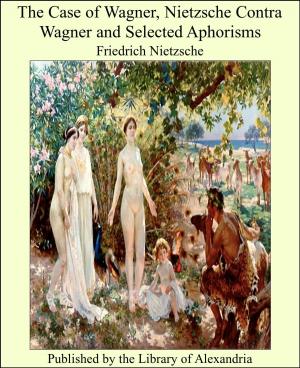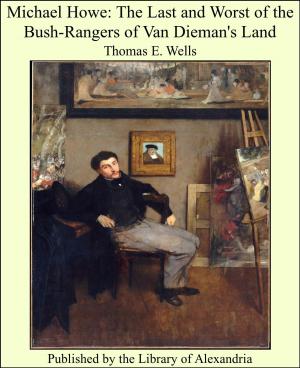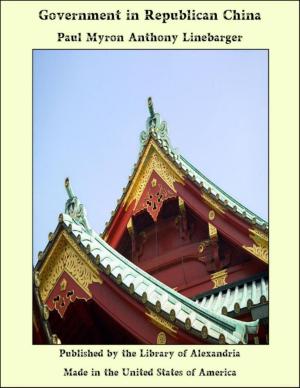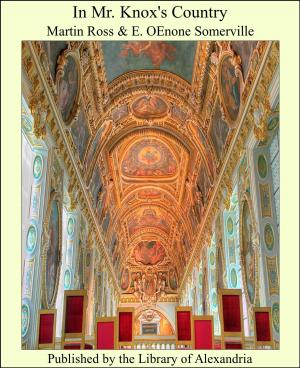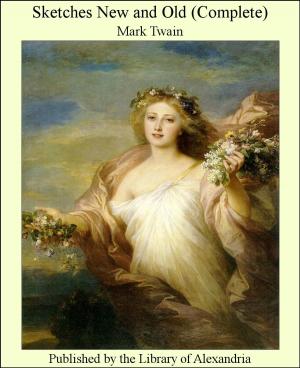| Author: | Sir Arthur Thomas Quiller-Couch | ISBN: | 9781465593979 |
| Publisher: | Library of Alexandria | Publication: | March 8, 2015 |
| Imprint: | Language: | English |
| Author: | Sir Arthur Thomas Quiller-Couch |
| ISBN: | 9781465593979 |
| Publisher: | Library of Alexandria |
| Publication: | March 8, 2015 |
| Imprint: | |
| Language: | English |
If a foreigner would apprehend (he can never comprehend) this England of ours, with her dear and ancient graces, and her foibles as ancient and hardly less dear; her law-abidingness, her staid, God-fearing citizenship; her parochialism whereby (to use a Greek idiom) she perpetually escapes her own notice being empress of the world; her inveterate snobbery, her incurable habit of mistaking symbols and words for realities; above all, her spacious and beautiful sense of time as builder, healer and only perfecter of worldly things; let him go visit the Cathedral City, sometime the Royal City, of Merchester. He will find it all there, enclosed and casketed—"a box where sweets compacted lie." Let him arrive on a Saturday night and awake next morning to the note of the Cathedral bell, and hear the bugles answering from the barracks up the hill beyond the mediaeval gateway. As he sits down to breakfast the bugles will start sounding nigher, with music absurd and barbarous, but stirring, as the Riflemen come marching down the High Street to Divine Service. In the Minster to which they wend, their disused regimental colours droop along the aisles; tattered, a hundred years since, in Spanish battlefields, and by age worn almost to gauze—"strainers," says Brother Copas, "that in their time have clarified much turbid blood." But these are guerdons of yesterday in comparison with other relics the Minster guards. There is royal dust among them—Saxon and Dane and Norman—housed in painted chests above the choir stalls. "Quare fremuerunt gentes?" intone the choristers' voices below, Mr. Simeon's weak but accurate tenor among them. "The kings of the earth stand up, and the rulers take counsel together…" The Riflemen march down to listen. As they go by ta-ra-ing, the douce citizens of Merchester and their wives and daughters admire from the windows discreetly; but will attend their Divine Service later. This, again, is England. Sundays and week-days at intervals the Cathedral organ throbs across the Close, gently shaking the windows of the Deanery and the Canons' houses, and interrupting the chatter of sparrows in their ivy. Twice or thrice annually a less levitical noise invades, when our State visits its Church; in other words, when with trumpeters and javelin-men the High Sheriff escorts his Majesty's Judges to hear the Assize Sermon. On these occasions the head boy of the great School, which lies a little to the south of the Cathedral, by custom presents a paper to the learned judge, suing for a school holiday; and his lordship, brushing up his Latinity, makes a point of acceding in the best hexameters he can contrive. At his time of life it comes easier to try prisoners; and if he lie awake, he is haunted less by his day in Court than by the fear of a false quantity.
If a foreigner would apprehend (he can never comprehend) this England of ours, with her dear and ancient graces, and her foibles as ancient and hardly less dear; her law-abidingness, her staid, God-fearing citizenship; her parochialism whereby (to use a Greek idiom) she perpetually escapes her own notice being empress of the world; her inveterate snobbery, her incurable habit of mistaking symbols and words for realities; above all, her spacious and beautiful sense of time as builder, healer and only perfecter of worldly things; let him go visit the Cathedral City, sometime the Royal City, of Merchester. He will find it all there, enclosed and casketed—"a box where sweets compacted lie." Let him arrive on a Saturday night and awake next morning to the note of the Cathedral bell, and hear the bugles answering from the barracks up the hill beyond the mediaeval gateway. As he sits down to breakfast the bugles will start sounding nigher, with music absurd and barbarous, but stirring, as the Riflemen come marching down the High Street to Divine Service. In the Minster to which they wend, their disused regimental colours droop along the aisles; tattered, a hundred years since, in Spanish battlefields, and by age worn almost to gauze—"strainers," says Brother Copas, "that in their time have clarified much turbid blood." But these are guerdons of yesterday in comparison with other relics the Minster guards. There is royal dust among them—Saxon and Dane and Norman—housed in painted chests above the choir stalls. "Quare fremuerunt gentes?" intone the choristers' voices below, Mr. Simeon's weak but accurate tenor among them. "The kings of the earth stand up, and the rulers take counsel together…" The Riflemen march down to listen. As they go by ta-ra-ing, the douce citizens of Merchester and their wives and daughters admire from the windows discreetly; but will attend their Divine Service later. This, again, is England. Sundays and week-days at intervals the Cathedral organ throbs across the Close, gently shaking the windows of the Deanery and the Canons' houses, and interrupting the chatter of sparrows in their ivy. Twice or thrice annually a less levitical noise invades, when our State visits its Church; in other words, when with trumpeters and javelin-men the High Sheriff escorts his Majesty's Judges to hear the Assize Sermon. On these occasions the head boy of the great School, which lies a little to the south of the Cathedral, by custom presents a paper to the learned judge, suing for a school holiday; and his lordship, brushing up his Latinity, makes a point of acceding in the best hexameters he can contrive. At his time of life it comes easier to try prisoners; and if he lie awake, he is haunted less by his day in Court than by the fear of a false quantity.

